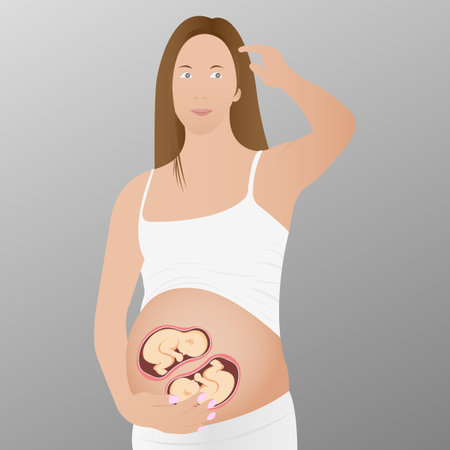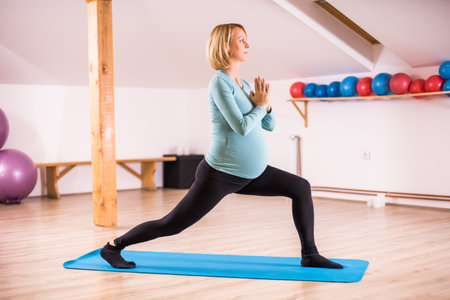Introduction to Postnatal Physiotherapy in the UK
Postnatal physiotherapy plays a crucial role in supporting new mums as they recover physically and emotionally after childbirth. In the UK, this specialised field of physiotherapy is integrated within the NHS maternity care pathway and is increasingly recognised for its importance in promoting long-term health and wellbeing for mothers. After pregnancy and delivery, many women experience changes in their bodies such as pelvic floor weakness, abdominal separation (diastasis recti), back pain, and reduced mobility. Postnatal physiotherapists are trained to assess these conditions and provide safe, effective exercises tailored to each individual’s needs. Their goal is not only to help women regain strength and function but also to prevent ongoing issues that could impact daily life.
The UK’s approach to postnatal care emphasises early intervention and support through multidisciplinary teams, including midwives, health visitors, and physiotherapists. New mums may be referred for physiotherapy by their GP or self-refer depending on local NHS trust provisions. Private physiotherapy services are also available for those seeking more personalised or immediate care. The table below provides an overview of common postnatal conditions addressed by physiotherapists and the corresponding benefits of intervention:
| Common Postnatal Issues | Physiotherapy Benefits |
|---|---|
| Pelvic Floor Weakness | Improved bladder control, reduced risk of prolapse |
| Diastasis Recti (Abdominal Separation) | Restored core stability, improved posture |
| Back or Pelvic Pain | Pain relief, enhanced mobility |
| General Deconditioning | Increased strength, gradual return to daily activities |
This holistic approach ensures that new mums across the UK receive appropriate guidance, rehabilitation exercises, and resources as part of their recovery journey. Whether through group classes offered at local hospitals or one-to-one sessions with a specialist, postnatal physiotherapy is a key element in helping mothers feel confident and supported as they adapt to life with their new baby.
Understanding Your Body After Birth
After giving birth, your body undergoes a range of physical changes as it begins the process of recovery. These changes can be significant and are unique to every new mum. The muscles, ligaments, and connective tissues that supported your pregnancy may need time and targeted care to regain strength and function. Hormonal shifts also continue to influence your physical wellbeing, affecting everything from joint stability to mood.
Common Physical Challenges for New Mums
| Challenge | Description |
|---|---|
| Pelvic Floor Weakness | Many women experience weakened pelvic floor muscles, which can lead to issues such as urinary incontinence or discomfort. |
| Diastasis Recti | This refers to the separation of abdominal muscles, often resulting in core weakness and lower back pain. |
| Postural Changes | Carrying your baby and breastfeeding can affect your posture, leading to back, shoulder, or neck pain. |
| C-Section Recovery | Mums who have had a caesarean section may face additional healing challenges, including scar tissue sensitivity and restricted movement. |
Why Tailored Physical Rehabilitation is Essential
No two postnatal journeys are exactly alike. That’s why postnatal physiotherapy in the UK focuses on personalised care—ensuring exercises and rehabilitation plans are specifically designed for your needs and recovery stage. This approach helps address individual concerns such as regaining pelvic floor strength or managing diastasis recti safely. By seeking support from a qualified women’s health physiotherapist, you can rebuild confidence in your body and promote long-term wellbeing.
The Role of Specialist Support in the UK
NHS services, private clinics, and community resources across the UK offer access to experienced physiotherapists who understand the unique cultural and healthcare needs of British mums. Whether you gave birth at home or in hospital, tailored guidance ensures you receive evidence-based advice relevant to your recovery journey.

3. Safe Exercises for Early Postnatal Recovery
In the first few weeks after giving birth, it’s important for new mums in the UK to focus on gentle exercises that promote healing and restore strength. UK-based physiotherapists recommend starting with low-impact activities, prioritising pelvic floor and core stability while gradually reintroducing movement to other muscle groups. These exercises are designed to support your recovery whether you’ve had a vaginal or caesarean delivery, ensuring safety and comfort as your body heals.
Pelvic Floor Exercises (Kegels)
Strengthening the pelvic floor is essential for preventing incontinence and supporting organs after childbirth. Begin with short sets and increase as you feel comfortable:
| Exercise | How To Do It | Frequency |
|---|---|---|
| Pelvic Floor Squeeze | Sit or lie down comfortably, gently contract your pelvic muscles as if stopping urine flow. Hold for 5 seconds, then relax for 5 seconds. | 10 reps, 3 times daily |
| Quick Squeezes | Tighten and release your pelvic floor muscles quickly. | 10 reps, 2-3 times daily |
Core Stability & Breathing Exercises
Your abdominal muscles may feel weak postnatally, especially if you experienced diastasis recti (separation of the abdominal muscles). Gentle core exercises can help rebuild strength without putting strain on healing tissues:
| Exercise | Description | Tips |
|---|---|---|
| Deep Belly Breathing | Lying on your back with knees bent, place hands on your tummy. Inhale deeply through your nose, allowing your abdomen to rise; exhale slowly and gently draw your belly button towards your spine. | Aim for 5-10 breaths, twice daily. |
| Pelvic Tilts | Lying on your back with feet flat on the floor, gently tilt your pelvis upwards by flattening your lower back against the floor. Hold briefly before releasing. | Start with 8-10 reps once a day. |
Gentle Whole-Body Movements
Light activity helps circulation and prevents stiffness. Short walks around the house or garden are encouraged, increasing distance as you feel stronger. Always listen to your body—rest when needed and avoid high-impact or strenuous activities until cleared by your GP or physiotherapist.
When to Seek Advice
If you experience pain, heavy bleeding, dizziness, or unusual symptoms during exercise, stop immediately and consult your healthcare provider or local NHS physiotherapy service for individualised guidance.
Remember:
Postnatal recovery is unique to each mum. The exercises above are suitable for most women in the early weeks postpartum but should be tailored based on personal health history and birth experience. Always follow advice from a qualified UK physiotherapist or midwife for best results.
4. Progressing Your Routine: When and How
Once you have established a foundation with gentle postnatal exercises, it is natural to wonder when you can safely progress your routine. In the UK, guidelines recommend that new mums listen closely to their bodies and follow advice from healthcare professionals such as GPs, midwives, or women’s health physiotherapists. Recognising the signs that your body is ready to take on more challenging activities is key for a safe and effective recovery.
Recognising Readiness for Progression
| Signs You’re Ready | What to Watch For |
|---|---|
| No pain during or after exercise | Absence of discomfort in your pelvic area, abdomen, or lower back |
| Good bladder and bowel control | No leaking when coughing, sneezing, or exercising |
| Core stability restored | Able to activate pelvic floor and deep abdominal muscles without straining |
| Healed perineal or caesarean stitches | No sign of infection or ongoing tenderness |
How to Advance Your Routine Safely
When you notice these positive changes and have clearance from your healthcare provider, you may gradually introduce more demanding exercises. It’s important to increase intensity slowly—rushing can increase the risk of injury or pelvic floor dysfunction. Follow this staged approach:
Stages of Progression
- Increase Repetitions: Start by adding more repetitions to your existing exercises rather than introducing new ones.
- Add Resistance: Use resistance bands or light weights for strength work, focusing on good form.
- Low-Impact Cardio: Walking, swimming, or cycling are excellent choices before progressing to jogging.
- Reintroduce Higher-Impact Activities: Only attempt running or jumping once you can perform moderate exercise without symptoms and have strong pelvic floor control.
Tips for Gradual Return to Activity
- Wear supportive trainers and a well-fitted sports bra.
- Stay hydrated and fuel your body with nutritious foods.
- Join local postnatal exercise groups—many UK communities offer buggy-fit classes or mum-and-baby sessions.
- Monitor for any warning signs like pain, leakage, heaviness in the pelvis, or fatigue. If these occur, scale back and seek advice from your GP or physiotherapist.
- Celebrate your progress—every step counts towards long-term wellbeing!
Remember, every woman’s recovery journey is unique. Be patient with yourself and don’t compare your progress with others. With careful attention and professional guidance, you will regain strength and confidence for all the activities you love.
5. Accessing Professional Support in the UK
After giving birth, it’s important for new mums to know where and how to access postnatal physiotherapy services. In the UK, you can find support both through the NHS and private providers. The NHS offers a range of postnatal care options, often starting with your health visitor or GP, who can refer you to a women’s health physiotherapist if needed. Private clinics are also widely available and may offer more immediate appointments or specialised programmes.
When Should You Seek Help?
If you experience any of the following issues after childbirth, it is recommended to seek professional physiotherapy support:
- Persistent pelvic pain or discomfort
- Ongoing back pain
- Urinary incontinence or leakage
- Difficulty returning to daily activities or exercise routines
- Concerns about diastasis recti (abdominal separation)
How to Find Services
| Service Type | Where to Access | Contact Details |
|---|---|---|
| NHS Physiotherapy | Referral from GP, midwife, or health visitor; some hospitals offer direct access clinics | NHS website: www.nhs.uk |
| Private Physiotherapy Clinics | Self-referral; search online or ask for recommendations from your GP or other mums’ groups | The Chartered Society of Physiotherapy: Find a Physio tool |
NHS vs Private: Key Differences
- NHS services are free at the point of use but may involve waiting times.
- Private physiotherapists typically offer quicker access and tailored packages but charge fees per session.
Additional Support Resources
Many local councils, children’s centres, and community groups also offer postnatal exercise classes and support networks. These can be valuable for peer support and guidance alongside professional care.
6. Practical Resources and Support Networks for New Mums
Accessing reliable support is essential for your postnatal recovery journey. In the UK, a wide range of resources are available to help new mums with both physical and emotional wellbeing. Whether you need advice on postnatal physiotherapy exercises, wish to connect with other mothers, or require professional guidance, these organisations and platforms can make a significant difference.
Useful UK-Based Websites and Helplines
| Resource | Description | Website/Contact |
|---|---|---|
| NHS Start4Life | Offers expert advice on postnatal health, including exercise tips and mental wellbeing. | start4life.nhs.uk |
| Pelvic, Obstetric and Gynaecological Physiotherapy (POGP) | Professional body providing information on pelvic health physiotherapy and local specialists. | thepogp.co.uk |
| NCT (National Childbirth Trust) | Provides online forums, local groups, and helplines for postnatal support and peer connection. | nct.org.uk |
| PANDAS Foundation | Support for parents experiencing postnatal depression or anxiety, including helpline and email support. | pandasfoundation.org.uk |
| MIND | Mental health charity offering advice, crisis lines, and resources tailored for new parents. | mind.org.uk |
| Tommys | Information on physical recovery after birth and emotional support resources. | tommys.org |
Recommended Apps for Postnatal Health in the UK
| App Name | Main Features | Availability |
|---|---|---|
| Squeezy NHS Pelvic Floor App | Guided pelvic floor exercises, reminders, progress tracking (NHS recommended) | iOS & Android |
| Bounty Pregnancy & Baby App UK | Postnatal guides, baby care tips, local offers, community chatrooms | iOS & Android |
| Mush – Mum Social App UK | Connects local mums for friendship and support; also includes practical advice articles. | iOS & Android |
| NCT Babychange App | Finds nearby baby changing facilities—useful when out with your newborn. | iOS & Android |
Community Groups and Peer Support Networks
- NCT Local Groups: Most UK regions have NCT-run meetups where you can share experiences and receive peer support. Find your nearest group via the NCT website locator tool.
- Mumsnet Forums: The UKs largest parenting forum offers discussion boards covering everything from postnatal recovery to exercise routines. Visit mumsnet.com.
- Bump & Baby Clubs: Many community centres run baby-friendly exercise classes or coffee mornings—check noticeboards at your GP surgery or children’s centre for details.
- The Daisy Foundation: Provides local postnatal classes focusing on gentle movement and relaxation. More info at thedaisyfoundation.com.
- Your Health Visitor: Every new mum in the UK is assigned a health visitor who can provide referrals to local physiotherapists or specialist services if needed. Don’t hesitate to ask for advice during your routine check-ups.
- Mental Health Support: If you’re struggling emotionally, reach out to your GP or call the NHS 111 service for urgent assistance. For non-emergencies, charities like Mind and PANDAS offer confidential support lines staffed by trained volunteers familiar with perinatal issues.
Your Wellbeing Matters: Reach Out When You Need Help
No two postnatal journeys are the same. Make use of these UK-specific resources to find trustworthy information, connect with others who understand your experience, and access professional guidance when needed. Taking care of both your physical recovery and emotional wellbeing is an important part of adjusting to life as a new mum—remember that help is always available in your local community and online.

